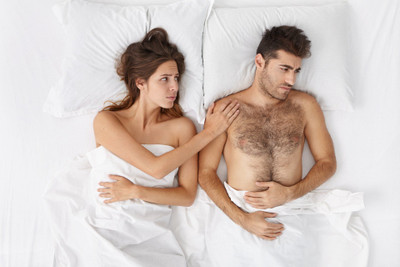Anxiety and Depression
Tori Douglas on Feb 4th 2020
More and more people suffer from the sometimes crippling symptoms of depression and anxiety. Anxiety and depression are the top mental health issues in the United States in recent years. At least, the topic of mental health is one more freely discussed in today's society. The stigma of mental health is fading, thankfully, and people today are more willing to be open and honest with their health care providers and loved ones about their mental health struggles and successes.
One area that is commonly affected by anxiety and depression is our sexual life. Studies have shown that a decrease in desire and sexual encounters is quite common for those suffering from anxiety and depression. The symptoms of these mental illnesses, from loneliness and feelings of awkwardness and being lost in the world do little toward feelings of sexuality and being able to connect emotionally and physically to others in a sexual and intimate way. The irony here is that sex and sexuality can help fight these very symptoms of anxiety and depression. Not just on a psychological level, but on a physical level, sex and intimacy can fight off anxiety and depression.
Anxiety and depression have been linked to a deficit of nitric oxide. Insomnia, irritability, and lack of energy have also been linked to a lack of nitric oxide. Sex has been proven to lift the levels of nitric oxide in the human body. Nitric acid relaxes the inner muscles of the blood vessels. This increases blood flow to the various erogenous zones, and brings blood to the skin surface, causing us to flush. This increase can lessen the symptoms of anxiety and depression by literally getting our blood pumping.
As we have discussed before on the blog, sex also releases endorphins, epinephrine, and serotonin from the brain. These chemicals have been linked to mood enhancement, positive behavioral choices, and a general feeling of positive emotion and well being. Dopamine is also being released in the brain during sex . One good thing about the release of dopamine is that the pleasure it brings makes the brain crave more pleasure. This can also help break the cycle of negative emotions.
If you decide to try sex as a way to combat the effects of anxiety and or depression in your life, keep in mind a few simple things. First, be prepared to fake it until you are really feeling it. Depression and anxiety rob us of joy, including the joy we find in sex and relationships. Secondly, be patient with yourself. Do not force yourself into any sexual encounter that makes you uncomfortable just because you are trying to make something happen. Always take things at your own pace. Lastly, always consult your doctor or therapist about anything you are doing to mitigate your symptoms.
Sex can't solve all your problems. If you are unwilling or unable to have sex to help your symptoms of anxiety or depression, do not judge yourself too harshly. Sex can and should be looked at as one more tool in your toolbox for coping with anxiety and depression.
Big Think
John's Hopkins
Psychology Today

